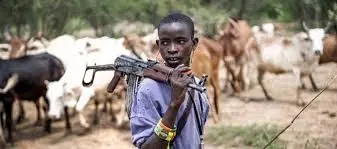A Call for Justice and Healing: The Ongoing Tragedy in Benue State

The violence that continues to plague Benue State is a deep and harrowing wound on the heart of Nigeria. Just this week, the communities of Emichi, Odudaje, and Okpamaju, in Otukpo Local Government Area, were once again subjected to brutal attacks by suspected Fulani herdsmen. These heinous acts follow a brutal wave of violence in which 13 innocent lives were stolen and 50 homes razed to the ground just a day earlier at Tobi — all in the same region.
The senseless bloodshed, the fear, the displacement — these are the scars left on the people of Benue State. This is not a story of mere statistics; these are real lives lost, families torn apart, communities displaced, and a region thrown into deep sorrow. The attacks, while tragic, are not isolated but part of a disturbing pattern of violence that has become all too familiar in the heart of Nigeria.
In the wake of these devastating events, the governor of Benue State, Hyacinth Alia, confirmed the arrest of three suspects in connection with the recent Otobi attack, but the question remains: how many more lives will be lost before we, as a nation, take real, meaningful action? How many more families will be shattered before we confront the systemic failures in our security infrastructure?
The victims of these attacks are not just the men and women who lost their lives or the families mourning their deaths. The children, the elderly, the women – they are left to grapple with the terror, the trauma, and the unbearable uncertainty that comes with living in the shadow of violence. Women and children, who are often the most vulnerable, have fled their homes in fear of being next. It is a tragedy that no one should ever have to endure.
Yet, in the face of such darkness, the Christian Association of Nigeria (CAN) has raised a crucial and compassionate call: to establish trauma healing centers for victims in Plateau and Benue States. This is not just a plea for physical aid, but for a restoration of the human spirit, for the psychological and emotional healing of those scarred by violence. The victims of these insurgencies are living with invisible wounds that can only be healed with structured rehabilitation and support — and it is imperative that we address this part of the crisis with the same urgency as we address the security challenges.
As Rev. John Hayab of Northern CAN poignantly said, “The physical wounds may heal, but the emotional and psychological trauma many victims are facing, especially in Plateau and Benue, require structured healing and rehabilitation. There can be no true recovery without addressing the scars left behind by violence.”
We cannot afford to ignore the invisible wounds, nor can we overlook the injustice and suffering that these communities endure every day. The people of Benue, like those in many other regions affected by violence, are desperate for safety, peace, and dignity. They are calling for the government to renew and fortify our security architecture, to ensure that such attacks are not repeated, that justice is served, and that no more innocent lives are lost.
But beyond security, there is a greater need for justice and healing. The victims of these attacks deserve more than just an investigation — they deserve compensation, rehabilitation, and a future free from the shadow of violence. We must not forget that the root causes of this insecurity lie in years of neglect, mismanagement, and lack of access to basic resources. It is only through addressing these systemic issues that we can hope to break this cycle of violence.
Finally, the role of women in rebuilding these communities cannot be overstated. Women are the backbone of society — they are the moral anchors, the peacebuilders, and the silent architects of social change. To deny them their rightful place in society, to deny girls their right to an education, is to deny the region and the nation a brighter future. Investing in women and girls — in their education, mentorship, and leadership development — is not just an act of justice, it is an investment in the collective future of Northern Nigeria.
The time for change is now. The people of Benue, of the North, of Nigeria, deserve peace, justice, and healing. Let us rise to the occasion. Let us address the security crisis with the seriousness it demands, and let us heal the wounds — both physical and psychological — that have been inflicted on these communities.
For the sake of those who have fallen, and for the future of those who remain, we must act — and we must act now.